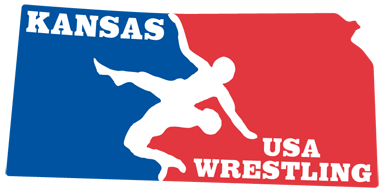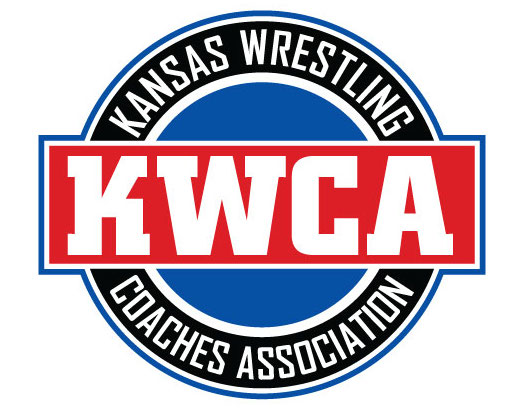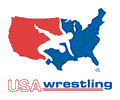Off the deep end?
Senator Schmidt, KSHSAA at odds over bill
Posted: Friday, February 10, 2006
By By Rick Peterson
The Capital-Journal
Kansas state senator Vicki Schmidt, who represents Topeka's 20th district, believes a high school swimmer who wants to improve by putting in a little extra training time should have the chance to do so.
Kansas High School Activities Association executive director Gary Musselman counters that his organization's rules against dual participation are in place because they're in the best interests of all student-athletes, not just a small number of elite athletes who would benefit from Senate Bill No. 317.
If passed, Senate Bill No. 317 would allow high school swimmers extra training time. State senator Vicki Schmidt says the bill will allow swimmers to maintain their endurance, but the KSHSAA is concerned it will open a "Pandora's box."
The bill already passed the Senate by a 33-7 margin, so it'll be up to the House Federal and State Affairs Committee and ultimately perhaps the entire Kansas House of Representatives to make a decision.
The crux of Bill 317, which Schmidt co-authored with state senators Mike Petersen, R-Wichita, and David Wysong, R-Mission Hills, is to allow high school swimmers to practice with their club teams during the high school season.
"Clearly, it is just for swimming and is not competition. It is just practices," Schmidt said. "If an athlete has met all of the practice requirements of their high school coach — and that would mean going to all the practices that are offered and not substituting a club practice for a high school practice — (the bill) says that they can go practice with their club team and not be penalized.
"I can think of a lot of other academic programs where we applaud individuals for getting extra help, so why do we want to punish the swimmers for doing it?"
Musselman said a major reason for the KSHSAA fighting the bill is a possible "Pandora's box" effect.
"If swimming is modified and exempted — given special treatment if you will, special status — it's already been very clear to us from contacts we've had and even from other legislators that other sports should be exempted similarly," Musselman said. "That changes the face and the dynamics of high school sports in our schools unalterably."
Bill 317 comes a year after House Bill 2345, which dealt with most of the sports the KSHSAA offers, failed to make it out of committee.
"The first bill, House Bill 2345, definitely was to relax or eliminate rules that were perceived to be restricting or limiting for select elite athletes, very capable kids who were also a part of club programs," Musselman said. "That was proposed for every sport that's under an Olympic governing body. Effectively, that would have left us with football and with golf.
"Obviously, after the hearings last March, that bill didn't go anywhere, but it also didn't go away, so it's not a dead issue yet, and may not be."
Schmidt, whose sons Jonathan and Tyler were multi-event state champions and are currently NCAA Division I swimmers, said Bill 317 would be a good testing ground in the area of dual participation, pointing out most states allow it.
"There are 38 states that have dual participation in some form in swimming, most of them with competition and practices. Seven totally ban it, and we're one of those, and five states don't offer swimming," she said.
"What I said on the Senate floor was, 'Why wouldn't we want to try this with a small group of individuals?' because if it doesn't work, then you've only affected a small amount of coaches, a small amount of athletes.' "
Schmidt said it would be up to the swimmers to decide if they even wanted extra training, apart from their high school program.
"Those students who just want to compete on a high school team that are not year-around swimmers and just want to go out for swimming, great, perfect," Schmidt said. "Their life doesn't change. And the schools that offer morning practice and afternoon practice, those student-athletes probably don't need any extra practice. Their requirements are being met."
Schmidt said one of the advantages of dual participation is athletes would be able to continue to train for the longer distances they face in non-high school competition.
"Why shouldn't a high school athlete be able to maintain their endurance training through their high school season?" she asked.
Another advantage Schmidt said is more elite swimmers would be likely to swim for their high school teams if they could continue to train with their clubs.
Schmidt's son, Jonathan, now a standout at Georgia, skipped two seasons of high school competition at Topeka High to train with his club team.
"To this day I know that on one hand he regrets not competing for his high school," Schmidt said. "On the other hand, I think he'd make that same choice if given the current practice situation today."
Musselman said the KSHSAA believes its members don't want a change.
"I think one important consideration is that not one school that's a member of this association has exercised their constitutional authority under our bylaws to propose changing these rules," Musselman said.
"That says to me that Kansas schools don't think this is necessarily a good idea in how they administer athletic programs in their schools, and that's middle school through senior high. If this is such a great idea and has so much merit why hasn't even one school proposed this formal change so we can run it through our governing system and see what our schools want to do with it?"
The bottom line, Musselman contends, is a rule change wouldn't be in the best interest of the vast majority of the state's student-athletes.
"Let's say there's 100 kids in Kansas who are truly at the Olympic elite level, which would be a huge number," Musselman said. "If there were 100 kids, is it merited, is it justifiable to change the rules that would impact literally four to five high school swimmers, and the potential ripple effect of every high school athletes — 100,000-plus kids involved in high school sports — to in some fashion give 100 kids an opportunity that they perceive that they don't have right now.
"That doesn't add up. That doesn't balance when you put that on the scale of balancing what's fair and what's in the greatest interest of the greatest number."
Basically she is saying that high school sports are for the kids that don't want to get any better. Her son could could have swam on his own all day long if the high school team wasn't working him hard enough. True for any sport, including wrestling. Might as well have just came out and said the swimming coach sucks, but my son still deserves to compete for his school even though the school had no basis for his success other than being in the right place at the right time.







